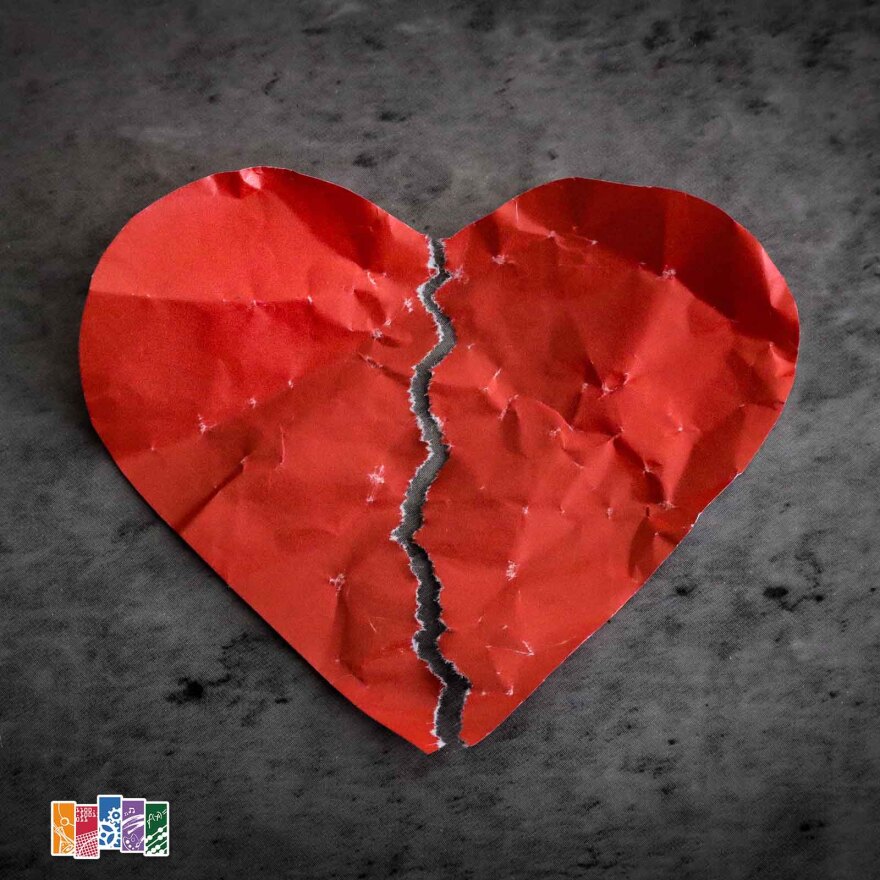Jasmine: Hi, I'm Jasmine.
Chrissy: I'm Chrissy.
Jasmine: We're from NIU STEAM and...
Chrissy: You're listening to the Sound of Science on WNIJ.
Jasmine: Debbie from St. Charles would like to know if it is really possible to suffer from a broken heart. We've seen it in fairy tales and on the Hallmark Channel, but is it something that can truly occur?
Chrissy: The heart is a muscle found just left of the center of your chest and is roughly the size of your fist. It is broken into four chambers: Two on the top of the heart called atria and two on
the bottom called ventricles. As we know, it's primary function is to move oxygenated blood from the lungs to the rest of the body and move blood containing carbon dioxide back to the lungs to be given off. The blood also carries nutrients. This is all accomplished by the electrical impulses that the heart generates to cause parts of the muscle to contract and other parts to expand.
Jasmine: Broken Heart Syndrome, also known as stress cardiomyopathy or apical ballooning syndrome, can be triggered by episodes of intense emotions or stress. Emotional triggers would include things like grief, divorce, life changes,or financial stressors. Physical events like sudden illnesses, major surgery, or most recently pandemics could bring on this condition.
Chrissy: A common misconception is that Broken Heart Syndrome is a form of heart attack, but it is definitely physiologically different. A heart attack is caused when blood flow is restricted
or blocked by the build up of plaque or by a clot. Broken Heart Syndrome is typically caused by stress hormones (like adrenaline) that cause the heart to operate differently than it normally does.
Jasmine: Fluid in the lungs, low blood-pessure, irregular heartbeat, heart failure, and blood clots in the heart can all be conditions which are the result of Broken Heart Syndrome. Though all of these symptoms can become fatal, if not treated, the likelihood of death, because of Broken Heart zsyndrome, is quite slim.
Chrissy: You have been listening to The Sound of Science on WNIJ, where you learn something new everyday.





